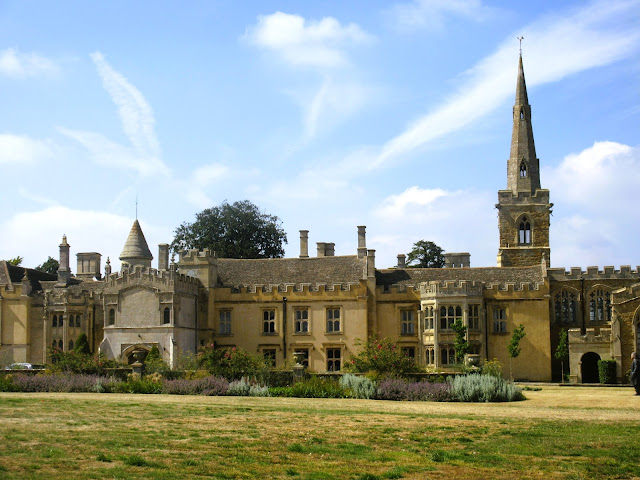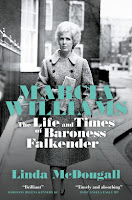A survey of what the doyen of Rutland Liberalism has been up to this year.
February
The old boy found himself grappling with the party leader's unwillingness to have the European Union mentioned in his presence:
To the new Liberal Democrat HQ in Vincent Square (or that may be the name of the helpful chap on the desk – I got caught in the rain on the way back to St Pancras and my notes have run rather).
I arrive to find the place in turmoil: our own dear leader, Ed Davey, has placed a bucket over his head and is resisting all entreaties to take it off. Vincent Square (if that is his name) explains that someone has just mentioned the European Union to Davey, and that the only way to persuade him to remove the aforementioned pail is for us all to climb into the ornamental fish tank that dominates the entrance lobby and sing ‘Jerusalem’.
So your diarist, Vincent Square, the lovely Sarah Green MP and a bicycle courier who arrived at the moment juste brave the angelfish and give it both barrels. Sure enough, our leader is soon bucketless.
March
A clue as to why I may have been drawn to working for Lord Bonkers in the first place emerged in the shape of a photograph in the early 1960s of me in a sailor suit.
May
The month began with a minority Liberal administration taking control of Rutland after taking almost 50 per cent of the vote across the county.
And Lord Bonkers shared his memories of previous local election nights in the East Midlands:
I can remember when every council for miles around counted its votes overnight. A chain of beacons would bring news of Liberal triumphs and Liberal defeats: an unexpected victory in Brixworth; a slew of gains on Wigston Urban District Council; disaster at Ashby de la Zouch.
I was once convinced we had taken Holland County Council, only to find I was watching the distress flares from a Liberian-registered tanker on Rutland Water.
June
In one of our irregular flashbacks to what Lord Bonkers was saying 30 years ago, we learnt of a time when the Duchess of Rutland showed him her Belvoir.
And I learnt that I may be related to the leading figure in an unfortunate incident that explains Lord Bonkers' conviction that it is the done thing to eat the cabin boy should one be shipwrecked.
July
Lord Bonkers had some advice for one of Labour's rising stars:
I see the coming Labour man Wes Streeting is putting it about that his grandfather was a member of the London underworld in the Sixties. All I shall say on the subject is that if the old geezer was one of Violent Bonham Carter’s boys, young Streeting would do well to keep schtum.
His grandmother, incidentally, once shared a cell with Christine Keeler, who always struck me as a Terribly Nice Girl.
He also welcomed the election of Earl Russell to the House of Lords by his fellow hereditary peers, but feared he might ask awkward questions about what became of his father's big band:
It happens that I gave them sanctuary on an island in Rutland Water after Conrad’s death. From time to time I see them sporting on its shore in animal skins and playing upon rude instruments, and I know Meadowcroft rows out for the occasional jam session, but few others know of their presence.
Will they thank me if I shatter their idyll? Can I continue to change the subject when my newest colleague broaches the matter?
September
The old boy responded in characteristically trenchant terms to Sebastian Payne's call for a restoration of National Service:
I find myself increasingly worried about right-wing comment journalists, who can only be described as unhappy, unskilled and unmoored. Flabby chested public-school types to a man, their eyes hollow from think-tank reports and self-abuse, what they need is fresh air, exercise and some good, old fashioned hard work.
As we can supply all three of these here on my estate, I have determined to act. With the help of Freddie and Fiona, I have drawn up a list of recruits for my ‘Great Rutland National Service’.
We also learnt more about Violent Bonham Carter when a young journalist came to the Hall to interview Lord Bonkers:
The researcher concludes by asking me a thoroughly modern question: what gender was Violent? I picture Violent in twin-set and pearls with three days' stubble hiding the razor scars and say firmly: "You didn’t argue with Violent. Violent Bonham Carter was whatever gender Violent Bonham Carter said Violent Bonham Carter was."
October
A letter to Fortean Times showed that someone else had entered the Bonkersphere:
On reaching the Old Rutland Inn, I knew I was making good progress. Passing this location, the road veers left and then right, and suddenly ... the roads were no longer bounded by country hedges and fences.
Instead on either side of the road it was as if there was a row of houses, living room windows bleeding light and street lights illuminating from above where I knew there were none. They were indistinct, almost but not quite present given the dense fog conditions, set back from the road a little.
As I drove through, my brain was screaming that this wasn't right, the shouldn't be there. Part of me wanted to stop but soon it was over and the fog and the darkness closed around the car once more and I kept going.
December
Who else could open up such an unexpected perspective on 19th-century political history?
For some reason, the historians rarely touch upon William Ewart Gladstone’s American Indian heritage, but I can reveal that Queen Victoria’s animus towards him was partly occasioned by his insistence on wearing a feathered headdress on state occasions and his habit of calling her “paleface” when she failed to agree with him. My own father told me that the occasional “heap big” cropped up in his conversation to the very end.























